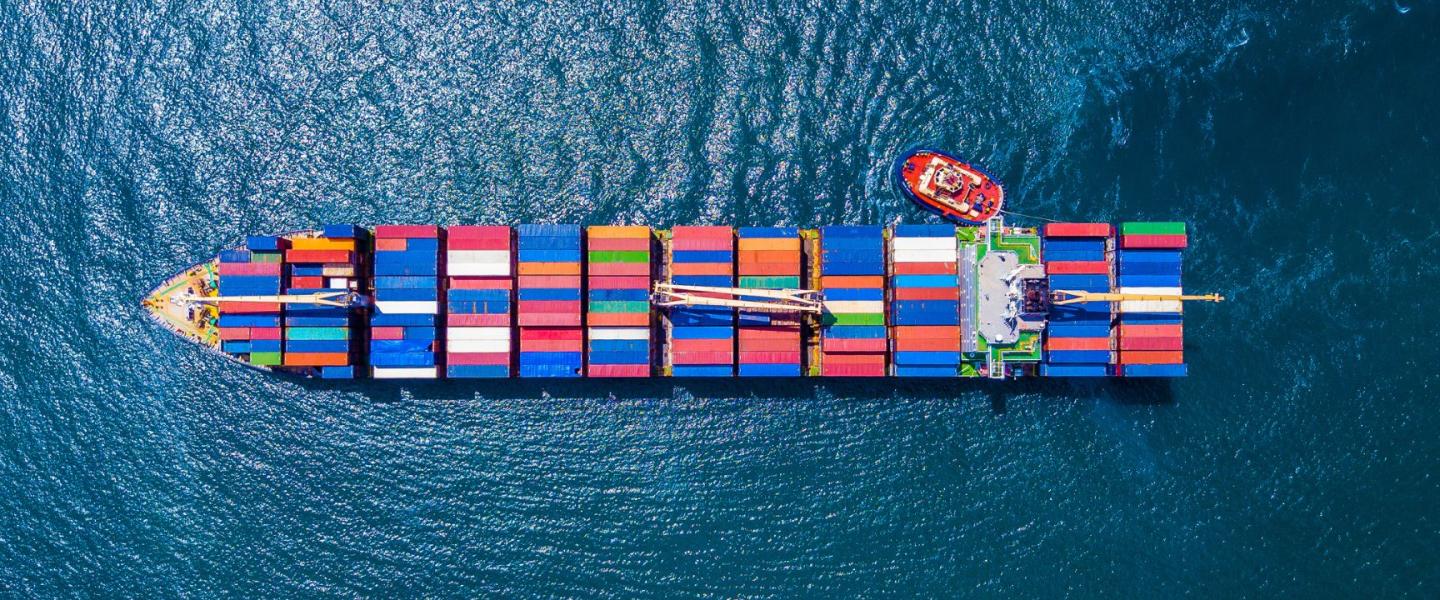As the Dali embarked on its 27-day journey from the port of Baltimore to Sri Lanka, disaster struck the dead of night. The ship completely lost power shortly after leaving port, leaving the crew stranded in darkness as the ship's lights suddenly went out.
With no electronics and, crucially, no engine power, the vessel found itself adrift and at the mercy of the currents. Alarms blared as the crew scrambled to diagnose and rectify the issue, but their efforts proved futile.
Amidst the chaos, a local pilot on board desperately issued orders, instructing the crew to turn the rudder sharply to port and drop anchor in a bid to prevent the vessel from drifting off course. Despite the activation of an emergency generator, the engines remained unresponsive.
With no other recourse, the pilots were forced to issue a mayday call just before 01:30 (05:30 GMT), alerting authorities to the impending collision.
Despite their efforts, the ship continued its ominous drift towards the city's iconic Francis Scott Key Bridge, ultimately resulting in a devastating collision and the collapse of a section of the bridge.
The Dali Crew
More than twenty crew members remain onboard the ship to cooperate with the National Transportation Safety Board’s (NTSB) ongoing investigation into the cause of the accident. It is unclear how long the Dali crew will remain, and it is unclear what areas have been deemed safe, though reports suggest the crew had electricity and food in their quarters.
Joshua Messick, the executive director of the Baltimore International Seafarers' Center, a non-profit organisation dedicated to serving seafarers calling on the Port of Baltimore told the BBC that he has been in contact with the crew via WhatsApp after facilitating the delivery of a care package, which included WiFi hotspots.
He noted that the crew members appear "rattled" and are maintaining a reserved stance regarding their situation as the investigation progresses.
"They're not divulging much to those who have reached out to them," Mr. Messick said. "They were without WiFi until Saturday and were uncertain of the perception from the outside world. There was uncertainty whether they were being held responsible or vilified. They were unsure of what to anticipate."
Mr. Messick further added, "They are navigating a delicate situation. Their statements could impact the reputation of the company. It is likely that they have been advised to maintain a low profile for the time being."
Advocating for Change and Protecting Human Rights at Sea
The harrowing events that unfolded on the 26th of March 2024 serve as a stark reminder of the inherent dangers faced by maritime workers, the hazardous conditions they face and the lack of adequate protection and support in the event of emergencies.
Whilst investigations are ongoing, this tragedy underscores the critical need for robust safety protocols to protect the lives and human rights of maritime workers and emphasises the critical need for The Geneva Declaration on Human Rights at Sea (GDHRAS).
The GDHRAS consolidates existing international laws and provides practical guidance to states on detecting, remedying, and ultimately ending human rights abuses at sea. Its adoption is paramount in ensuring that all individuals at sea, including maritime workers, are afforded the necessary protections and rights and that tragedies like the Francis Scott Key Bridge collapse are prevented to the greatest extent possible.
Call to Action
"Urgent action is needed to ensure the safety and well-being of maritime workers worldwide. The courage and resilience displayed by the Dali crew amidst this crisis highlight the urgent need for enhanced safety measures and comprehensive support systems for those working at sea. We must come together as a global community to uphold the rights and dignity of all individuals at sea and to prevent such tragedies from occurring in the future." added Matthew Vickers, HRAS Executive Chair.
Our charity stands in solidarity with the victims and their families, and we will continue advocating for justice and accountability in maritime operations and hope that those with the power to act, join us as we work towards the adoption of The GDHRAS and protecting human rights at sea.
Support our work
Click here to support our work and contribute to lasting change in the maritime industry and help end human rights abuses at sea.
Contact: If you have any questions, please write to us at enquiries@humanrightsatsea.org
About Sharing. We welcome the use and dissemination of our work with proper accreditation. Please ensure that our Terms of Use are conformed with at all times.
